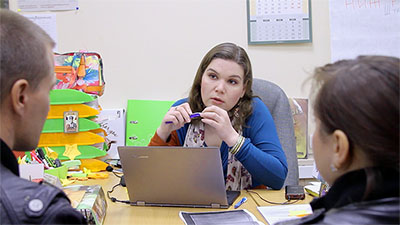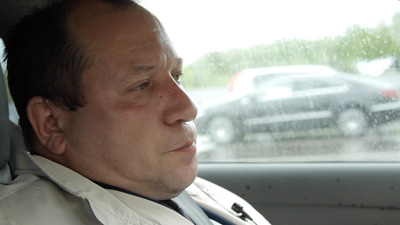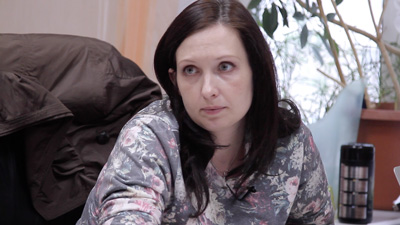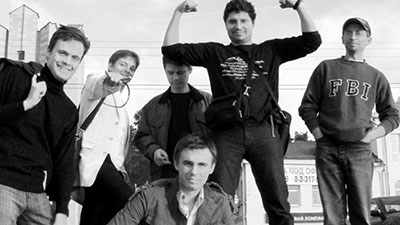Dmitry Utukin
Head of the Investigation Department
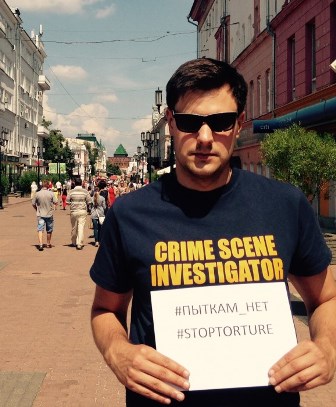
Dmitry Utukin
Around seventy percent of my classmates chose humanities to continue their education: international relations, history, and cultural studies. I had a similar mindset, but I thought that one could not count on a well-paid job with those degrees. Therefore, I decided to study law. Mathematics was not among the entrance tests, and, on top of that, I liked the curriculum.
When I became a law student, I started to think about a career of an investigator. Later on, however, I was doing an internship at one investigative department, where I had to work side-by-side with an actual investigator, and this experience gave me a cold shower. I was processing cases related to insulting police officers. Those were standard cases, and it was easy to send them to court. When I was doing my internship, drunk tanks still existed. Almost every time when they delivered someone from a drunk tank to the station, that person would insult “poor” police officers.
We had a standard questioning template, where one had to simply change names and dates; another standard questioning template for paramedics with interchangeable names as well, and one more standard template for police officers. I was in charge of collecting all the information and filing, while the investigator only signed everything and did the questioning. The text was prepared in advance, and the questioning was a mere formality. Then everyone put their signatures, and I collected all the missing papers. It was obvious to me that this all was a joke, not real investigations. The investigator also had some real cases on rapes and murders, but their progress was very slow, while he had to, no matter what, send two criminal cases to court. It was at that moment when I understood that I did not want to do this anymore.
«My father – a colonel of internal military forces – always wanted me to become a police officer, or to work for the Federal Security Service»
Back then the Investigative Committee did not have the kind of funding they are receiving today. The investigator was wearing a bedraggled sweater, and his office was located in a former kindergarten, which had not been renovated. One could almost see a fading rainbow on the wall.
The image of the soviet investigator fighting crime was dispelled. Cases that went to court were being stamped as on a conveyor. Of course, those people were criminals, but not the greatest criminals of all. Truly dangerous acts were being investigated very slowly, draggily, and the chances of actually getting to work on them were low.
I was doing another internship in one fairly old human rights organization. I was invited to come there by one lecturer from our university, who taught international law. They did not do any civic investigations. They performed monitoring instead. The task of interns was to respond to letters from inmates and collect information. I thought it was quite useless: you collect information, send it to the authorities, and they reply that everything is great. This was it.
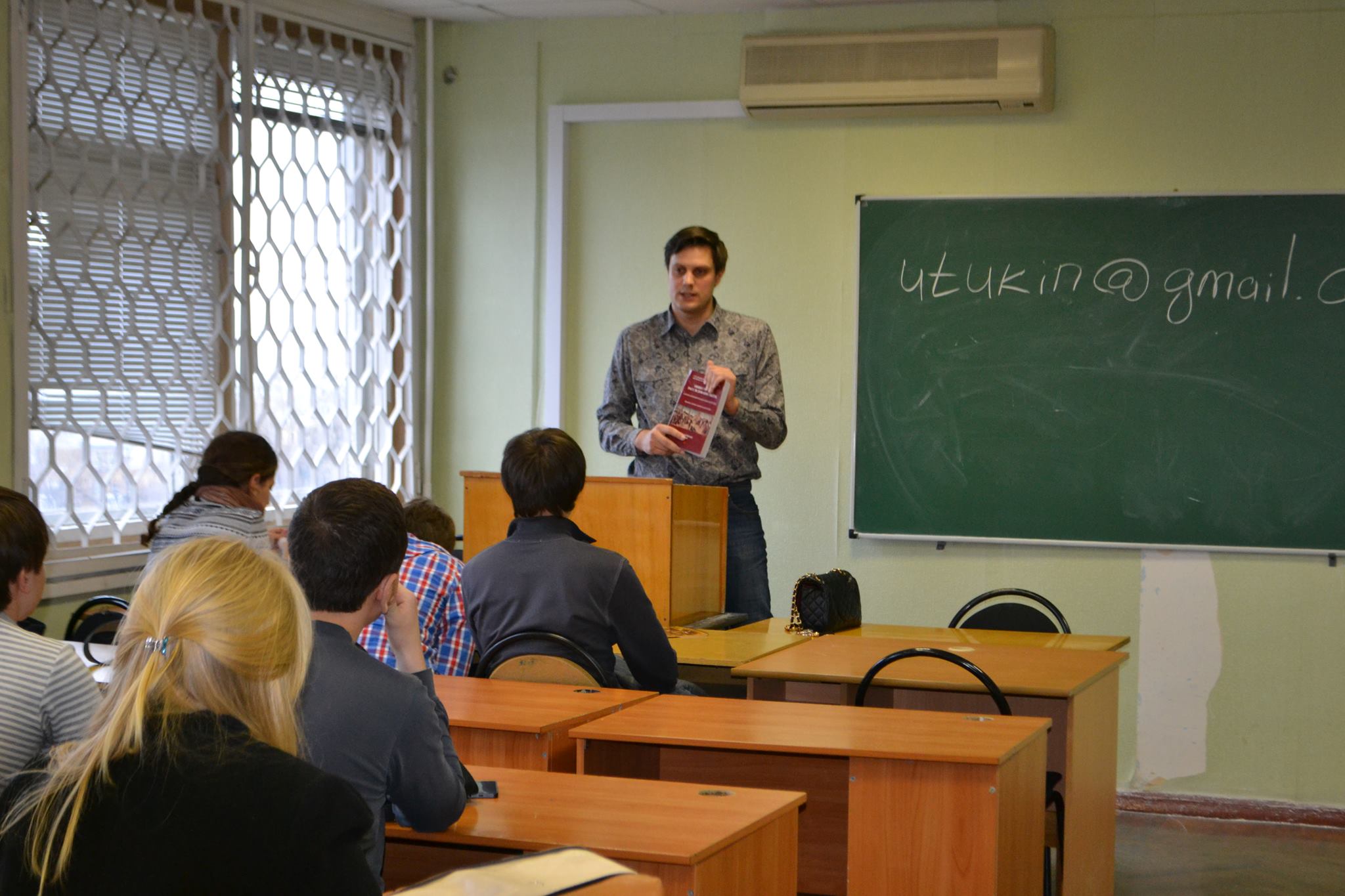
Dmitry Utukin is presenting in front of law students
I felt huge disappointment in the legal profession. I thought I made a wrong choice when I went to study law. So, I began to work as a logistician in the business sector. I wanted to start building my career in that field, to get a second degree in economics, and to stay in business. I did not particularly like the company I worked for, so I was also looking for another job simultaneously.
I had a group-mate in the university, his mother was a deputy, and his stepfather was working for the Federal Security Service; that is why that guy was quite toffish. When none of us still had any driving license, he was already driving a car using his brother’s license and photograph, even though they did not even look alike, for they had different fathers. We met several months after the graduation, and I asked him “How are things?” He replied “Well, I work in the Committee against Torture.” I asked what it was “Something famous?” Back then he said that it was the Nizhny Novgorod branch of the UN Committee against Torture, he fibbed a little. He told me it was all about business trips abroad, wages in US dollars, and a lot of exciting investigations. I became interested, and so I asked him to let me know, if they had any openings. Later I forgot all about it, but six months after that meeting I received a call and was invited to come to their office.
Since I thought that I was going to the “branch of the UN Committee against Torture”, I imagined automatic doors, a secretary with a hands-free, modern equipment, nanotechnology and stuff. In reality, I came to an old office: 19th century building renovated in soviet times, wooden panels on the walls, just like in police stations, ragged linoleum, old safes, one person sitting with a laptop with rubbed out logo, dark room with one light bulb, just like in NKVD. Without taking a cigarette out of his mouth the person looked at me and asked “Why have you come here?” At that moment I thought “Oh crap!” During our further conversation I quickly realized that the Committee did not have any direct relation to the UN.
«I found it interesting that people were actually trying to do something. Instead of filing reports and conducting monitoring they actually checked up on violations themselves, they tried to get to the bottom of it. This seemed very attractive to me»
The head of the Committee, Igor Kalyapin, looked like some shady businessman with ruffianly appearance. He sat there in his leather jacket, smoked in the office and started to scare me at once. Having looked at my CV, he asked “What are you doing here with your degree? Why have you come? There is no career, low salary, and investigators press us all the time. It is dangerous and boring to work here.” He was testing my limits in such a way.
My current views were strongly shaped by our trips to Sochi and Chechnya. We spent more than two weeks in one boat with Igor Kalyapin and Oleg Khabibrakhmanov. The traces of war were still fresh in Chechnya those days: broken roads, Minutka Square destroyed by “Grad” rocket launchers, no electricity, and no proper sewage. We heard an earful of war stories from the locals.
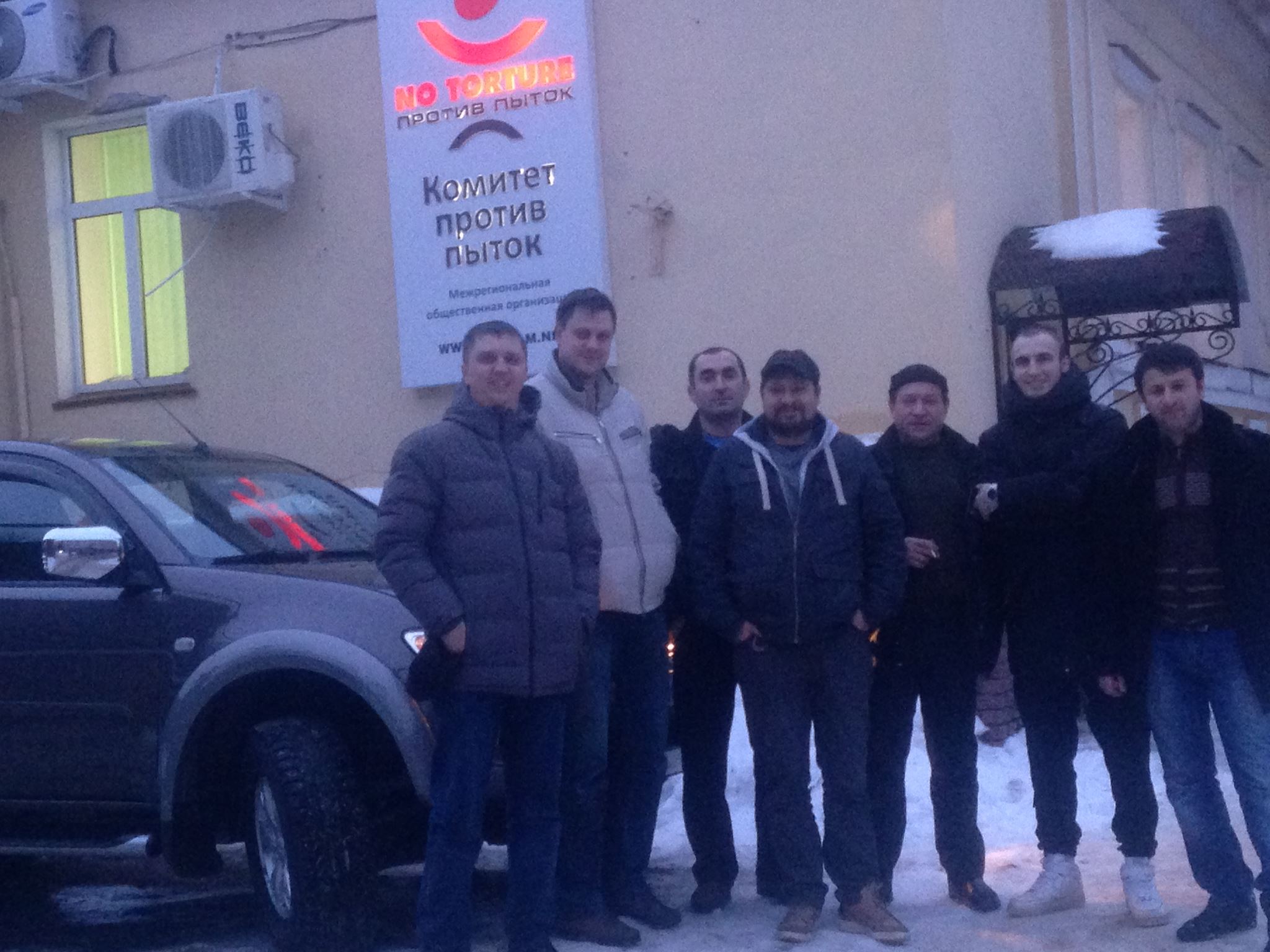
The members of the Joint Mobile Group in front of the Committee’s office before their trip to Chechnya
During our trip to Sochi we were investigating a case of the local Special Police Force. Several employees from this unit were relaxing in a local bar. There they had a quarrel with some Armenians. The next day the whole police unit went to look for the offenders. Without further ado, the policemen beat the hell out of all the Armenians, whom they could find in that bar, their youngest victims were about fourteen years old. We investigated this incident; there were many witnesses: tourists, visitors, and the hosts. People were so indignant at that brutality that they could not keep calm. Some parents organized committees. Even the local police inspector helped us to gather witnesses. The Investigative Committees got involved as well. This was the first case when we worked with the Investigative Committee side-by-side, and not as with an adversary, for we are a “foreign agent”. So, we were looking for witnesses, bringing them to an investigator, who questioned them. Eventually, it turned out to be a successful case. Six people were convicted, and five of them were imprisoned.
We work with very different people. For instance, we had one visitor who was a nuclear physicist from the Russian Academy of Sciences. He was beaten up by the police in the street, because they got him mixed up with someone else. Once we had an old man; his local police inspector suspected that the guy had broken his window. The pensioner was apprehended at home and brought to the station in his slippers and underpants. Then it became clear that the old man was innocent, and they kicked him out in the street just like that, with no clothes on. It was February and -20 C. The old man had to walk home for two kilometers, he barely survived. Sometimes we also work with hellish jailbirds, who have eight previous convictions, two of which are for murder.
«Anyone can become a victim of police brutality, however pretentiously this may sound. Statistics shows that every fifth person in Russia has suffered abuse on the part of the police»
We do not have a torture map for all Russia, because not all the regions keep such specific statistics. Naturally, in the regions, where we or other organizations like ours operate, the number of such crimes is somewhat lower. For instance, in Ulyanovsk such statistics is unavailable, and we do not know anything about the level of violence there. But I think that this level is more or less equal everywhere. In some places, though, this is being discussed, and some police officers are being prosecuted, while in other places such things remain invisible.
There is a yearly drop in the number of applications in Nizhny Novgorod Region in general; but this is not the case for detention facilities.
«The use of torture during pretrial investigation has decreased, but it remained at the same level for those, who stay behind the bars»
The society does not really understand what torture is, they do not realize this happens in Russia. We know because we follow the news. There was this infamous case of “Dalniy” police station, for example. But somehow this all goes past the public. People still cannot believe that in the 21st century Russian police may use torture. This is the main problem.
We are not on the first place in the world when it comes to torture. If one looks at such countries as Sri Lanka, Uzbekistan, or Latin American countries, the level of police violence is much higher there. The main difference between Russia and the West in this respect is that in the West people do not shy away from talking about this publicly. The crimes committed in Guantanamo, USA, became known because of an investigation conducted by our colleagues from Human Rights Watch. The quality of such investigations is much higher, if they get to the judicial scrutiny stage. That kind of investigation is more efficient because it is conducted by independent bodies.
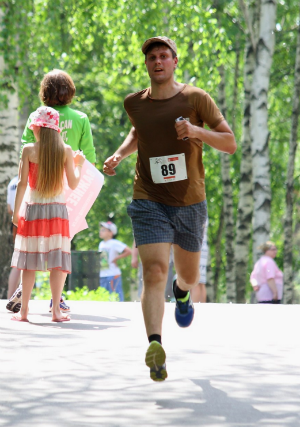
At a local running competition
The main problem in Russia is that investigators and the police are working in one team. Investigators do not arrest criminals, they only fill in papers. They do not gather data and have no agents. All this comes from detectives, who work for the police. Now, let us assume that an investigator has ten cases at hand. Nine out of ten are rapes, murders, something else, and there is one case on torture. The investigator understands that if today he begins to dig under his partner, with whom he drinks vodka on Fridays, and sends him to prison tomorrow, the day after tomorrow his colleagues from the police will stop bringing information on his criminal cases, and his own performance will go down. This bond between investigators and detectives is the heart of the problem.
They have started to address this problem already: a special investigative department dealing exclusively with crimes committed by public officers has been created. Unfortunately, there are only 38 investigators for all of Russia. This, of course, is a drop in the ocean. They only investigate the most high-profile cases. This was a sort of response to put out the fire caused by the “Dalniy” police station case, by that story with a champagne bottle. That case became a trigger, and it was decided, in order to somehow alleviate the tension, to make such a step. I would not say that this unit is inefficient. They have qualified investigators there, but there simply is too few of them.
We have difficult relations with the state. On the one hand, we won large “presidential grants” twice. On the other hand, we were labeled “foreign agents”. The state, represented by the president and the Constitutional Court, assures that the status of “foreign agent” does not affect NGOs’ image. De facto, however, people have very negative reaction to this stigma.
Many people simply do not understand what this means. They believe that, if you were included into this list, your organization will soon be shut down. Even some lawyers ask “Aren’t you closed yet? Are you still working?” It even happened once that some policemen, who were being accused, filed a motion asking for my recusation, arguing that I was an employee of Committee against Torture, and, since our Committee was a “foreign agent”, its operation was banned.
«I think that people who come to work in our organization have quite an active mindset, and they want to bring about some real changes. They are slightly idealistic»
Their reaction is unambiguously negative. It is a kind of signal for state institutions telling them that the organization is disliked by the state, and that it is better to stay away from them. We used to have joint projects with Nizhniy Novgorod regional court. I have no idea, whether they will continue. We also trained state officials at our own expense, we had yearly courses. Let us see how this situation develops, but so far our relations are complicated.
As for the youth’s interest in human rights, I could say that two times we were looking for young employees for low level positions. I had to conduct eighty interviews. Candidates usually think of human rights as “Something very good”, they say “Human rights is everything!” For them it is not about the relationship between a citizen and the authorities, it is not some narrow legal field, for them it is “everything, which is good, against everything else, which is evil.” Those people who come to us cannot even formulate for themselves what human rights are, let alone utilize some common terminology.
I think the state is to blame for this, because the authorities present everything in such a way that human rights become associated with some liberal values that are alien to us, or with the protection of gay rights. Previously, law faculties allocated for human rights just a few hours, while two years ago this topic disappeared completely. Future lawyers receive meager knowledge on the conventions and know close to nothing about the essence of human rights, about what they are for.
